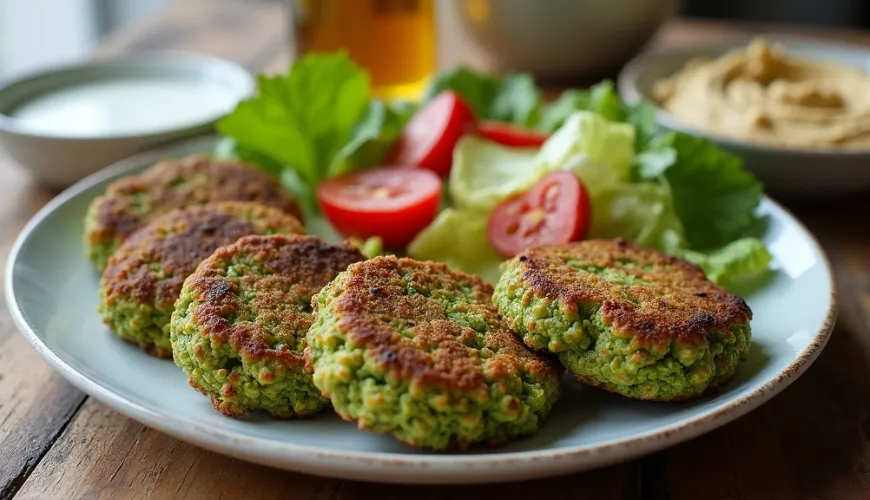
How to Limit Ultra-Processed Foods in Your Life

What Are Ultra-Processed Foods and Why Should We Monitor Them
Have you ever considered the true nature of the foods we consume every day? In an era where supermarket shelves are laden with colorful packaging and tempting products, it becomes increasingly difficult to distinguish between real food and cleverly crafted products of the food industry. This is where the term ultra-processed foods comes into play.
In recent years, this term has increasingly appeared in discussions about healthy eating, obesity, chronic diseases, and the overall impact of modern diets on our health. But what exactly does it mean? And why is it important to pay attention to it?
A Definition with Impact
The term "ultra-processed foods" was first systematically defined by the Brazilian nutritional platform NOVA, which classifies foods into four groups based on their level of processing. At one end of the spectrum are unprocessed and minimally processed foods—such as fruits, vegetables, legumes, nuts, or fresh meat. At the other end are the ultra-processed products—industrially manufactured products that often contain little or no whole foods and instead have a lot of added substances.
Typical features of these products are artificial flavors, sweeteners, colorings, emulsifiers, preservatives, and especially high levels of sugar, salt, and fats. Their main goal is not just to satisfy hunger, but to create a product that is extremely tasty, attractive, and has a long shelf life—while health benefits often take a back seat.
Examples We All Know
To give a better idea—ultra-processed foods include sweetened cereals, instant noodles, frozen ready meals, flavored yogurts, sugary sodas, margarine-type vegetable fats, most packaged cookies, candies, semi-finished products, and fast-food meals.
While these products were once exceptions, they have now become a common part of many people's daily diet. According to research published in the professional journal The BMJ, ultra-processed foods account for more than 50% of energy intake in some Western countries. And although the Czech Republic is slightly below this average, the trend is clear—their consumption is increasing.
Why It Can Harm Us
The primary issue with ultra-processed foods lies in their nutritional value—or rather its absence. They are often "empty" in terms of vitamins, minerals, and fiber, yet rich in calories, simple carbohydrates, and various additives that the body cannot naturally process. This can contribute to a range of health problems.
Research shows that a high consumption of ultra-processed foods is associated with an increased risk of obesity, type 2 diabetes, cardiovascular diseases, cancer, depression, and even premature death. Moreover, it has been shown that these products can affect our microbiome—the composition of bacteria in the gut, which plays a key role in our immune system and overall health.
What might be even more concerning are the findings on their influence on our behavior. The combination of flavors, textures, and additives can affect the brain in a similar way to addictive substances. Many people consume more than they actually need and cannot stop even though they feel unwell afterward.
What It Looks Like in Everyday Life
Imagine a typical workday morning. Someone wakes up late, skips breakfast, and on the way to work buys a packaged croissant and coffee with vanilla syrup. For lunch, they have a fried schnitzel with fries in the canteen, and for dinner, they heat up a ready meal in the microwave at home. Does it sound familiar? All these meals have one thing in common—a high proportion of ultra-processed ingredients. And while individually they may not seem so harmful, collectively they make up the majority of daily intake.
Fortunately, there are ways to reverse this trend without spending hours in the kitchen. The key is mainly conscious food choices, a return to simplicity, and planning. Completely avoiding ultra-processed foods might be challenging, but minimizing them is achievable and beneficial.
How to Identify Ultra-Processed Foods?
At first glance, it may not always be obvious. It's not just about whether the food is "in a box" or "from a farm." The crucial factor is reading the composition. If the ingredient list is long, contains unfamiliar substances, and includes words like "isolates," "modified starch," "flavorings," "thickeners," or "colorings E...," it is very likely an ultra-processed product.
Tip: Focus on foods with the fewest ingredients possible. For example, plain unsweetened flakes, fresh fruit, unsalted nuts, homemade hummus, or yogurt with live cultures.
As the well-known American author Michael Pollan says: "Don't eat anything your great-grandmother wouldn't recognize as food."
Is It Possible to Avoid Them Completely?
In a modern world where speed is often a key factor and convenience is prioritized over quality, completely avoiding ultra-processed foods is challenging—especially for busy people, parents of young children, or students. But even small steps can have a big impact. Simply replacing some store-bought products with homemade options, choosing quality sources of ingredients, and prioritizing simplicity over artificial complexity can make a difference.
For example, instead of instant soup, one can prepare a quick vegetable broth, add their own fruit to plain yogurt instead of buying flavored ones, and make a simple dressing from olive oil, lemon, and herbs instead of a store-bought one.
Significance for the Planet and Society
Ultra-processed foods are not just a matter of individual health. Their production often involves intensive agriculture, excessive packaging, high CO₂ emissions, and resource waste. Additionally, they support the centralization of the food chain in the hands of a few multinational companies, leading to the loss of local food traditions and less space for small producers.
By choosing less processed and local foods, we not only support our own health but also a more sustainable food system that is kinder to nature and fairer to the people who actually produce the food.
In an era when the food industry literally feeds us shortcuts, artificial flavors, and marketing illusions, returning to simple and natural food can be a revolutionary act. While ultra-processed foods may save time and satisfy taste buds at first glance, their long-term impact on health, the economy, and the planet is alarming. By learning to read labels, plan meals, and prioritize the genuine over the artificial, we take a step not only for ourselves but also for the future of the world we want to live in.

